COP29: Kenya Leads Africa’s Push for $1.3 Trillion in Climate Finance in Baku, Azerbaijan
Prime Cabinet Secretary Musalia Mudavadi and Environment CS Aden Duale Lead Africa's Charge at COP29 in Baku, Pushing for Transformative Climate Action for Vulnerable Nations.
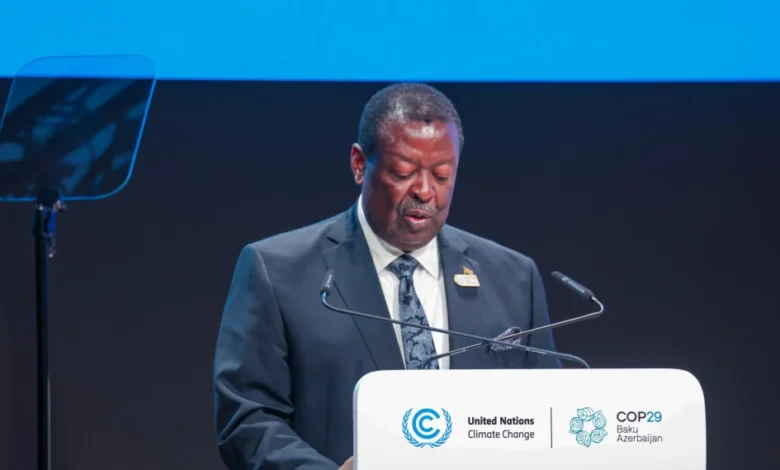
Baku, Nov 15 – This week in Baku, Azerbaijan, African nations and climate activists gathered for COP29, determined to amplify their voices in the global push for increased climate investments and a radical overhaul of the world’s financial systems. For them, this is not just another summit—it’s a defining moment in the fight for climate justice.
Central to these discussions this week was the push to establish new climate finance targets to assist developing nations in addressing climate adaptation and mitigation challenges. A proposed framework, the New Collective Quantified Goal (NCQG), aims to replace the 15-year-old commitment by developed nations to provide $100 billion annually to developing countries—a target that was only met in 2022 after years of missed deadlines.
Kenyan delegation positioned itself as a leading voice at COP29 for Africa, championing the urgent reform of global climate finance systems. The delegation demanded transformative action to address a climate crisis that they said has continued to “disproportionately affect the world’s most vulnerable nations.”
“For the African continent, adaptation is not a choice; it’s survival,” declared Ali Mohamed, Kenya’s Special Envoy for Climate Change and Chair of the African Group of Negotiators (AGN), during a media briefing.
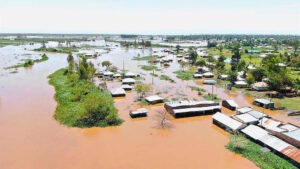
As a key member of the Group of 77 (G77) and China—a coalition of over 130 nations—Kenya joined efforts in rejecting the draft NCQG. The group insisted that the proposed framework falls woefully short of meeting the financial needs required for developing countries to adapt to, mitigate, and recover from the ravages of climate change. Kenyan delegation further argued that the current target was out of step with the escalating severity of the climate crisis. The G77 is demanding at least $1.3 trillion annually to cover adaptation, mitigation, and loss and damage funding.
“Africa is calling for $1.3 trillion annually by 2030, primarily through grants and concessional loans, to prevent worsening debt in developing countries,” Environment Cabinet Secretary Aden Duale stated.
The Kenyan delegation also pushed back against what it perceives as an attempt to shift financial responsibility away from wealthier nations, emphasizing the principle of historical responsibility enshrined in the Paris Agreement.
Kenya’s Prime Cabinet Secretary, Musalia Mudavadi, who is leading the delegation, emphasized the urgency of the situation: “The principle of historical responsibility must guide climate finance,” he asserted during a plenary session. The climate challenges facing most African countries are both severe and urgent, with prolonged droughts and flash floods displacing millions, destroying crops, and deepening food insecurity.
Another key priority is boosting adaptation funding, particularly for critical sectors like agriculture, health, and infrastructure, where the current funding remains significantly below the estimated $400 billion needed annually.
“In Kenya, climate change is no longer a distant threat. It is here, destroying lives and livelihoods,” Mudavadi noted. “Agriculture is the backbone of our economy— but unpredictable weather patterns and extreme conditions are putting millions at risk.”
The delegation is prioritizing adaptation funding, arguing that current financial mechanisms are ill-equipped to address the urgency of the crisis. For Kenya, adaptation is not a long-term goal—it is a pressing necessity as arid regions face unrelenting droughts and essential infrastructure succumbs to floods.
Another significant focus at COP29 was the creation of a Loss and Damage Fund (LDF), which has received $700 million in initial pledges to address irreversible climate impacts such as the destruction of homes and livelihoods. Despite the fund’s establishment at COP28 in Dubai, it remains underfunded and inaccessible to many nations in urgent need.
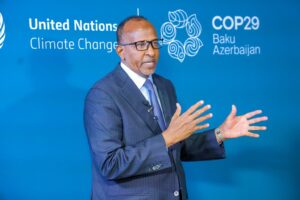
Kenya joined the call for a robust and well-resourced mechanism to help vulnerable communities recover from climate disasters. “Accountability must be central,” Mudavadi argued. “The wealthiest nations must recognize their historical responsibility and contribute meaningfully to the loss and damage fund.”
Kenya and its partners pushed for an overhaul of the global financial system to facilitate greater investment in clean energy projects and called for a reevaluation of the methods used to calculate and distribute climate finance. Kenya supported this approach as part of broader efforts to reconfigure global financial systems, ensuring they serve the needs of developing nations rather than perpetuating debt cycles.
Africa, endowed with vast carbon-capturing forests and untapped resources for green growth, is primed to become a leader in providing clean energy to millions. Yet, despite this potential, sub-Saharan Africa receives less than 3% of global climate finance, crippling efforts to advance National Adaptation Plans and fulfill the goals of the Paris Agreement.
“There is no reason why Africa should be greenly poor. Africa should be greenly wealthy by proper valuation of its vast contributions to global environmental services,” African Development Bank Group (AfDB) President Akinwumi Adesina said during a meeting of African Ministers of finance, economy, foreign affairs, climate change, and environment in the run-up to COP29.
To unlock this green wealth, Adesina proposed incorporating natural resources, such as carbon sinks, into GDP calculations to expand Africa’s borrowing capacity for green projects. Preliminary estimates by the AfDB suggest that recognizing carbon sequestration could have boosted Africa’s nominal GDP by $66 billion in 2022, reflecting a 2.2% increase. “This adjustment could boost Africa’s nominal GDP by $66 billion, allowing nations to access more funding for greening their economies,” Adesina explained.
AfDB also unveiled an innovative program that incorporates Africa’s vast environmental resources, such as carbon sinks, into calculations of the continent’s wealth. This recalibration would enable African nations to access increased financing from international markets.
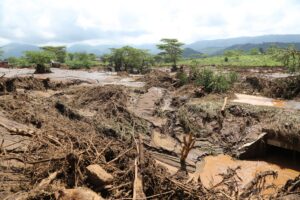 “This adjustment creates greater financial headroom for countries to secure additional funding and invest in transitioning to greener economies,” Adesina noted. “It is a crucial step toward redefining Africa’s debt sustainability and unlocking the continent’s economic potential.”
“This adjustment creates greater financial headroom for countries to secure additional funding and invest in transitioning to greener economies,” Adesina noted. “It is a crucial step toward redefining Africa’s debt sustainability and unlocking the continent’s economic potential.”
Despite contributing only 4% of global greenhouse gas emissions, African nations bear a disproportionate share of the impacts of climate change, including extreme weather events, prolonged droughts, and rising sea levels. The resources available to combat these challenges remain woefully insufficient.
“Climate finance is not charity; it’s justice,” Ali Mohamed asserted, summing up the sentiment of African negotiators. The slow pace of discussions, combined with years of unmet commitments, has fueled skepticism about whether COP29 will deliver meaningful outcomes or become yet another forum for hollow promises.
The stakes at COP29 are monumental. For Kenya and other African nations, the outcomes of COP29 will be critical in determining whether the continent can secure the financial support and systemic changes needed to address their vulnerabilities, accelerate green transitions, and contribute to global climate goals. “This is about survival,” Mudavadi stressed. “Without adequate resources, the future of millions hangs in the balance.”
As the negotiations unfold, behind closed doors tensions were running high at COP29. Many fear that the revised NCQG draft will fail to address the systemic flaws of the initial proposal. As the first week of COP29 came to a close, African nations expressed growing concern that the conference was becoming yet another forum for empty promises—one full of talk but lacking in real, substantial action.
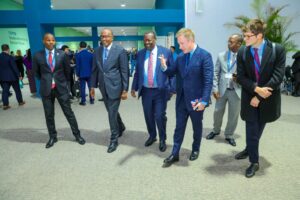
On Friday, a coalition of prominent climate leaders and experts called for urgent reform of the COP process to ensure that global climate negotiations lead to tangible, immediate solutions. In an open letter addressed to the UNFCCC parties, UN Secretary-General António Guterres, and UNFCCC Executive Secretary Simon Stiell, the signatories demanded a shift from continued negotiations to actual implementation.
Among the letter’s signatories were key figures such as former Irish President Mary Robinson, former UNFCCC Executive Secretary Christiana Figueres, and former UN Secretary-General Ban Ki-moon. While acknowledging milestones like the Paris Agreement’s 1.5°C goal, the establishment of the LDF, and commitments to phase out fossil fuels and cut methane emissions, they warned that these efforts have not been enough to reverse the troubling rise in global emissions.
As the summit progresses, Kenya remains resolute in its demands for equitable climate finance and accountability. The delegation’s message was clear: the time for half-measures is over, and COP29 must deliver real solutions.
“Baku must deliver,” Ali Mohamed declared. “The world cannot afford another failed COP.” The final days of negotiations will reveal whether global leaders are prepared to rise to the occasion or leave the most vulnerable behind once again.